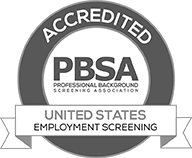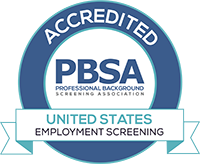BLOG
A CA Supreme Court Decision Regarding Background Checks
September 18, 2018
The Court reviewed two background screening laws to determine if one was vague and the two contradicted each other.
About The Case
A group of current and former bus drivers who worked for First Student, Inc., and First Transit, Inc. (known collectively as “First”) filed a class action lawsuit against the employer. The suit, which was initiated by Eileen Connor, alleged that First ran background checks without proper authorization.
According to the lawsuit, First provided drivers with a pre-hire package that contained an Investigative Consumer Report Disclosure and Release notice. The document reportedly included information about the recipient’s rights and a box people could check to indicate they wanted to receive a copy of their background report. It also reportedly included content that was meant to release First from all claims and damages related to a background investigation.
Connor’s lawsuit claimed she did not authorize First to conduct a background screening. Before initiating a background check, employers must provide a written disclosure and get the person’s written authorization. This disclosure may not contain any additional content, such as text that says the employer cannot be held liable.
When the case was initially reviewed in court, First requested and was granted a summary judgment. An appeals court overturned that and sided with the plaintiffs. A major factor in this case and their decision involved two existing laws about background screening in California.
The Investigative Consumer Reporting Agencies Act and The Consumer Credit Reporting Agencies Act
While considering this case, the CA Supreme Court reviewed The Investigative Consumer Reporting Agencies Act (ICRAA) and The Consumer Credit Reporting Agencies Act (CCRAA). After the lawsuit was filed, First claimed that this case should be dismissed because the CCRAA, which governs consumer credit issues, was constitutionally vague and the two laws contradicted each other.
After consideration, the court determined that the CCRAA was not constitutionally vague and the laws were not contradictory. Associate Justice Ming W. Chin wrote that the court finds: “Potential employers can comply with both statutes without undermining the purpose of either. If an employer seeks a consumer’s credit records exclusively, then the employer need only comply with CCRAA. An employer seeking other information that is obtained by any means must comply with ICRAA.”
In their ruling the court also stated that “It seems to us that such a duality does not make legal compliance particularly difficult, much less impossible.”
What Employers Should Know
Every employer should be aware that they must obtain authorization from a person before running a background check on them. California employers should further be aware of the ICRA and the CCRAA.
The ICRAA is like the state version of the Fair Credit Reporting Act. It governs the use of consumer reports, such as background checks, about what can be included regarding a consumer’s character and reputation. The CCRAA covers consumer credit issues. While the two may have similarities and overlap a little, the conclusion of the CA Supreme Court is that both are valid, clear laws that stand alone and can both be followed.
Employers must comply with laws that are in effect wherever they operate. The team at Backgrounds Online makes efforts to keep up with these laws and provide educational resources that can assist with your compliance efforts. If you have questions about how we can help with your background screening process, please contact us today.







